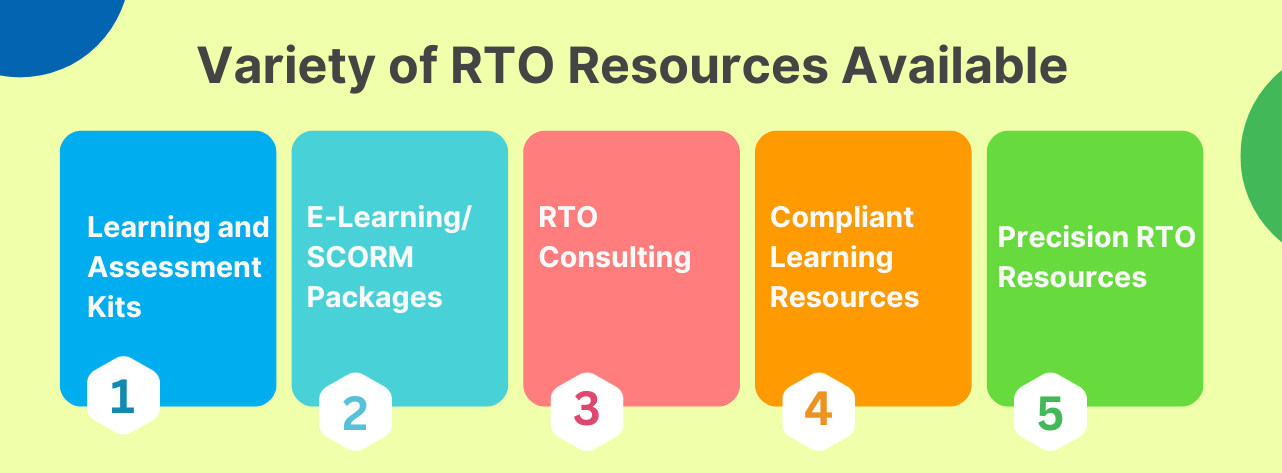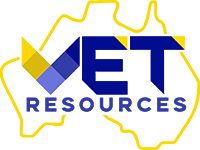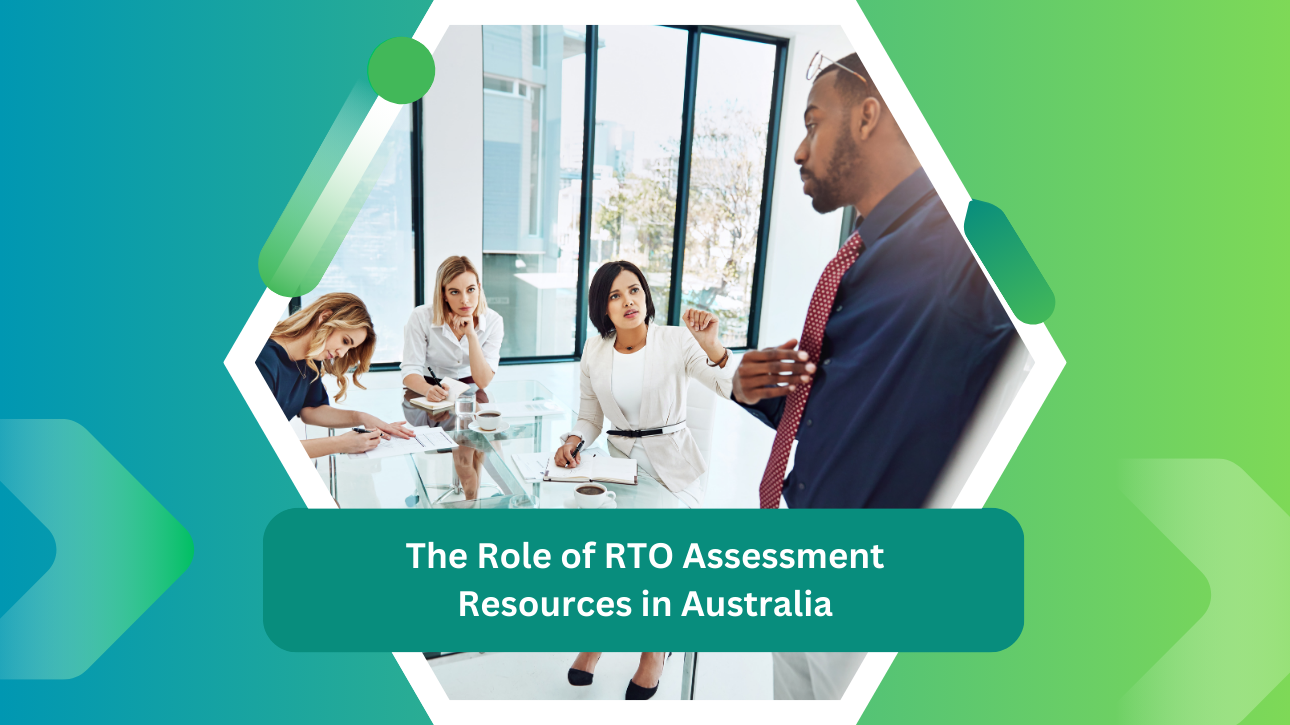Introduction
Registered Training Organisations (RTOs) hold a special place in the world of learning, shaping the future with top-notch RTO training resources. These resources, built to match the Australian Qualifications Framework (AQF) and the standards for Registered Training Organisations, are the backbone of quality education. They are not just about following rules; they are about building a wide array of skills and knowledge for every unit of competency. From practical work experience to simulation, learners get a taste of real-world work under the watchful eyes of the Australian Skills Quality Authority and the Department of Training and Workforce Development.
Diving deeper, it is clear that ongoing professional development and a well-rounded list of resources are the secret ingredients. They keep teachers in the loop with the latest training and development, making learning a rich and rewarding journey. The role of RTO training resources is a promise – a promise to deliver education that’s not just part of the business but a gateway to a world of possibilities. So, let us explore this exciting world and see how these resources make learning fair, valid, and truly extraordinary!
The Landscape of RTO Assessment Resources in Australia
In Australia, the landscape of RTO Assessment Resources is diverse and dynamic, catering to various educational needs and industry standards. Here is a closer look at the different types of resources available and their adaptability to various learning environments:
Variety of RTO Resources Available:

- Learning and Assessment Kits
- E-Learning/SCORM Packages
- RTO Consulting
- Compliant Learning Resources
- Precision RTO Resources
Adaptability to E-Learning:
- Customisation for Online Learning: Resources are designed to be easily modified to fit online learning platforms, ensuring a seamless transition from traditional to digital education.
- Use of Plain English: The content is crafted using plain English, making it accessible and understandable for many learners.
Customisation and Contextualisation:
- Industry-Specific Resources: From hospitality training packages to ICT training resources, materials are tailored to meet the needs of various industries.
- Units of Competency: Each resource is aligned with the required units of competency, ensuring learners acquire the necessary skills and knowledge.
Adherence to Standards:
- All resources are developed and validated to adhere to the standards for Registered Training Organisations, ensuring compliance and quality in delivering vocational education.
The Impact of Quality and Compliance
Quality and compliance are the cornerstones of RTO Assessment Resources in Australia. Ensuring that resources meet the highest standards is crucial for the success of both learners and Registered Training Organisations. Here’s how quality and compliance impact the vocational education sector:
Audit Assist Guarantee:
- Providers like VET Resources offer an Audit Assist Guarantee, ensuring that the resources meet compliance guidelines and are ready for audit, reducing stress for your RTO.
Compliance with Industry Standards:
- All resources are meticulously developed to align with current industry standards, ensuring learners are well-equipped with relevant skills and knowledge.
- Regular updates are provided to keep the materials current and compliant with industry standards or regulations changes.
Development and Validation Process:
- Resources undergo a rigorous development and validation process involving skilled instructional designers and industry experts.
- This process ensures that each resource is accurate, reliable, and fit for purpose, contributing to the high quality of vocational education.
Benefits of Compliance:
- Enhanced Reputation: Compliance with standards enhances the reputation of RTOs, attracting more learners and stakeholders.
- Reduced Risks: Adherence to compliance reduces the risk of regulatory issues and ensures smooth operations.
- Improved Learner Outcomes: High-quality, compliant resources improve learning experiences and outcomes.
Benefits for RTOs
Registered Training Organisations (RTOs) in Australia reap numerous benefits by utilising high-quality RTO Assessment Resources. These benefits are not only financial but also contribute to the general effectiveness and efficiency of educational delivery. Here are the key benefits:

Time and Cost Savings:
- Using ready-made, compliant learning resources saves hundreds of hours in development, validation, proofreading, and formatting.
- This translates to significant cost savings for RTOs, allowing them to allocate resources to other essential aspects of their operations.
Lifetime Updates and Unlimited Student License:
- Providers like VET Resources offer free lifetime updates, ensuring that RTOs always have access to the most current and compliant materials.
- The unlimited student license allows for a one-time payment for unlimited resource delivery, further enhancing cost efficiency.
Customisation and Contextualisation:
- Resources are fully editable and easy to contextualise, allowing RTOs to tailor the materials to meet specific learning needs and industry requirements.
- This flexibility enhances the learning experience and ensures relevance to the ever-evolving job market.
Table: Overview of Key Benefits for RTOs
| Benefit Category | Description |
| Time and Cost Savings | Significant reduction in development time and operational costs. |
| Lifetime Updates | Access to the most current and compliant materials at no additional cost. |
| Customization and Contextualization | Ability to tailor resources to specific needs and industry standards. |
Range of Training Packages and Qualifications
The diversity of RTO Assessment Resources in Australia is reflected in the wide range of training packages and qualifications available to learners. These resources cater to various industries, ensuring learners develop the necessary skills and knowledge for their chosen fields. Here is a snapshot of the range available:
Industry-Specific Resources:
- ICT Training Resources
- CHC Training Resources
- CPC Training Resources
- Hospitality Training Package
- And many more, covering a range of industries.
Levels of Qualifications:
- Certificate I to Advanced Diploma
- Tailored to meet the requirements of the Australian Qualifications Framework (AQF).
Units of Competency:
- Each training package includes specific units of competency, ensuring learners are well-equipped for their chosen careers.
Table: Examples of Training Packages and Qualifications
| Industry | Training Package | Level of Qualification |
| Information Technology | ICT Training Resources | Certificate I to Advanced Diploma |
| Health and Community Services | CHC Training Resources | Certificate I to Advanced Diploma |
| Construction | CPC Training Resources | Certificate I to Advanced Diploma |
| Hospitality | Hospitality Training Package | Certificate I to Advanced Diploma |
The Development and Validation of RTO Resources
Creating high-quality RTO Assessment Resources is a meticulous process involving several stages of development and validation. This ensures that the resources are not only compliant but also effectively meet the learning needs of students. Here is a brief overview of this process:
Involvement of Skilled Instructional Designers:
- A team of skilled instructional designers from various industries is crafting the resources.
- Their expertise ensures the materials are relevant, engaging, and aligned with industry standards.
Evaluation by Industry Experts:
- Each resource is thoroughly evaluated by experts in their respective fields.
- This step guarantees the accuracy, reliability, and quality of the learning materials.
Continuous Improvement and Updating:
- Providers like VET Resources are committed to continuously reviewing, updating, and validating their resources.
- This ensures flawless delivery and learning experiences, keeping the materials current and compliant with industry developments.
Table: Development and Validation Process
| Stage | Description |
| Involvement of Instructional Designers | Crafting of resources by experts to ensure relevance and engagement. |
| Evaluation by Industry Experts | Thorough assessment to guarantee accuracy, reliability, and quality. |
| Continuous Improvement and Updating | Regular review and updates to maintain compliance and current industry standards. |
VET Development and Specialized Training
In addition to presenting a broad range of standard resources, some providers also specialise in the VET development of RTO Assessment Resources. This allows for the creation of customised materials tailored to the specific requirements of different RTOs. Here’s how VET development and specialised training contribute to the landscape:
Custom Development Based on RTO Requirements:
- Providers work closely with RTOs to develop materials that meet their unique needs and industry specifications.
- This includes creating resources for specialised areas, such as project management qualifications and units of competence.
Validation by Compliance and English Experts:
- VET Resources undergo rigorous validation by compliance experts to ensure they meet regulatory standards.
- English experts proofread the materials to guarantee clarity, coherence, and effective communication.
Specialisation in Various Industries:
- Custom development caters to a wealth of knowledge across various industries, including hospitality, ICT, and health services.
- This specialisation ensures that RTOs receive resources that are highly relevant and aligned with industry demands.
Table: Overview of VET Development and Specialization
| Aspect | Description |
| Custom Development | Tailored resources based on RTOs’ unique needs and industry specifications. |
| Validation | Rigorous validation by compliance and English experts for quality assurance. |
| Industry Specialization | Development of resources for a diverse range of industries with high relevance. |
The Difference between Private RTO and TAFE
Understanding the distinction between Private Registered Training Organisations (RTOs) and Technical and Further Education (TAFE) institutions is essential for navigating the vocational education sector in Australia. Here is a concise comparison of the two:
Operational Differences:
- Private RTOs operate independently, often specialising in specific areas of training.
- TAFEs are government-operated, offering a broader range of training areas.
Range of Training Areas:
- Private RTOs typically focus on niche or specialised training areas, providing tailored resources and programs.
- TAFEs offer comprehensive training across various fields, catering to a diverse student population.
Accreditation and Recognition:
- Both Private RTOs and TAFEs offer nationally recognised training and accredited qualifications.
- They adhere to the Standards for Registered Training Organisations, ensuring quality and compliance.
Table: Comparison between Private RTO and TAFE
| Aspect | Private RTO | TAFE |
| Operation | Independently operated, often specialized. | Government-operated, offering a broad range of areas. |
| Training Areas | Niche or specialized training areas. | Comprehensive training across various fields. |
| Accreditation | Nationally recognized and accredited qualifications. | Nationally recognized and accredited qualifications. |
Understanding Training Packages and Accredited Courses
Training packages and accredited courses are fundamental components of vocational education and training in Australia. They are designed to ensure national recognition and adherence to Australian Qualifications Framework (AQF) qualifications. Here is a brief overview:

Development of Training Packages:
- Training packages are developed by Service Skills Organisations (SSOs) and include qualifications, units of competency, and assessment requirements.
- They are endorsed by the Australian Industry and Skills Committee (AISC) to ensure industry relevance and quality.
Purpose of Accredited Courses:
- Accredited courses address specific industry, enterprise, educational, or community needs not covered by training packages.
- They are developed by RTOs, industry groups, or enterprises and are nationally recognised upon accreditation by the Australian Skills Quality Authority (ASQA) or relevant state/territory authority.
National Recognition and AQF Qualification:
- Both training packages and accredited courses lead to nationally recognised qualifications aligned with the AQF.
- This ensures consistency, quality, and industry relevance across the vocational education sector.
Table: Overview of Training Packages and Accredited Courses
| Aspect | Training Packages | Accredited Courses |
| Development | Developed by SSOs and endorsed by AISC. | Developed by RTOs, industry groups, or enterprises. |
| Purpose | Provide qualifications, units of competency, and assessment requirements. | Address specific needs not covered by training packages. |
| Recognition and Qualification | Lead to nationally recognised AQF qualifications. | Nationally recognised upon accreditation by ASQA or relevant authority. |
Conclusion
In conclusion, RTO Assessment Resources are pivotal in shaping the landscape of vocational education in Australia. From developing high-quality, compliant training materials to providing specialised, industry-relevant resources, these tools are integral in ensuring excellence in education. Here is a recap of the key points:
Variety and Adaptability:
- A diverse range of RTO Assessment Resources is available, including learning kits, e-learning packages, and specialised resources.
- These resources are adaptable and customisable, catering to the unique needs of various industries and learning environments.
Quality and Compliance:
- Rigorous development and validation processes ensure the quality and compliance of resources.
- Providers like VET Resources offer Audit Assist Guarantees and free lifetime updates, enhancing the reliability and currency of materials.
Benefits for RTOs:
- Utilising these resources results in significant time and cost savings, lifetime updates, and the ability to offer tailored learning experiences.
Diversity of Training Packages:
- Training packages and accredited courses cover various industries and qualifications, ensuring national recognition and alignment with AQF.
Call to Action: For those seeking to elevate the vocational education and training standard, embracing RTO Assessment Resources is a step in the right direction. Discover the abundance of knowledge and resources available at VET Resources and embark on a journey towards educational excellence.
Disclaimer:
The information presented on the VET Resources blog is for general guidance only. While we strive for accuracy, we cannot guarantee the completeness or timeliness of the information. VET Resources is not responsible for any errors or omissions, or for the results obtained from the use of this information. Always consult a professional for advice tailored to your circumstances.






